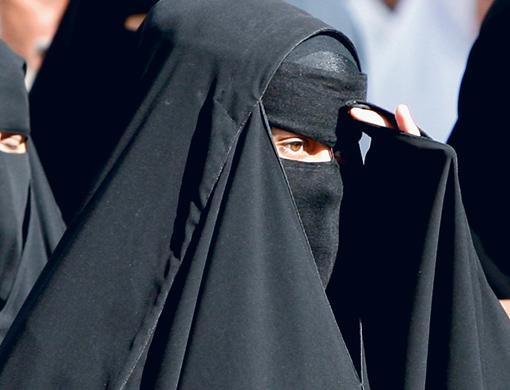
Brussels: An influential committee of Belgian lawmakers voted Wednesday to impose a nationwide ban on wearing the Islamic burqa in public, paving the way for the first clampdown of its kind in Europe.
The federal parliament's home affairs committee voted unanimously to endorse the ban on any clothes or veils that do not allow the wearer to be fully identified, including the full-face niqab and burqa.
Those who ignore it could face a fine of 15-25 euros (20-34 dollars) and/or a jail sentence of up to seven days, unless they have police permission to wear the garments.
Officials say the full house could vote on the draft law on April 22.
"This is a very strong signal that is being sent to Islamists," French-speaking deputy Denis Ducarme, from the centre-right Reformist Movement that proposed the bill, told the assembly in Brussels.
He said he was "proud that Belgium would be the first country in Europe which dares to legislate on this sensitive matter."
"We have to free women of this burden," said his colleague Corinne De Parmentier.
The head of the party, Daniel Bacquelaine, said: "Just like dwarf throwing - even if it's on a voluntary basis - the burqa is contrary to the dignity of women. It's a walking prison."
If endorsed, the vote would see the ban imposed in streets, public gardens and sports grounds or buildings "meant for public use or to provide services" to the public, according to the text of the bill.
Exceptions would be allowed for certain festivities like carnivals if municipal authorities decide to grant them.
The vice-president of the Muslim Executive of Belgium, Isabelle Praile, warned that the move could set a dangerous precedent.
"Today it's the full-face veil, tomorrow the veil, the day after it will be Sikh turbans and then perhaps it will be mini skirts," she said.
"The wearing of a full-face veil is part of the individual freedoms" protected by Belgian, European and international rights laws, she said.
The decision comes amid controversy in the kingdom over the wearing of Muslim religious symbols in public places.












